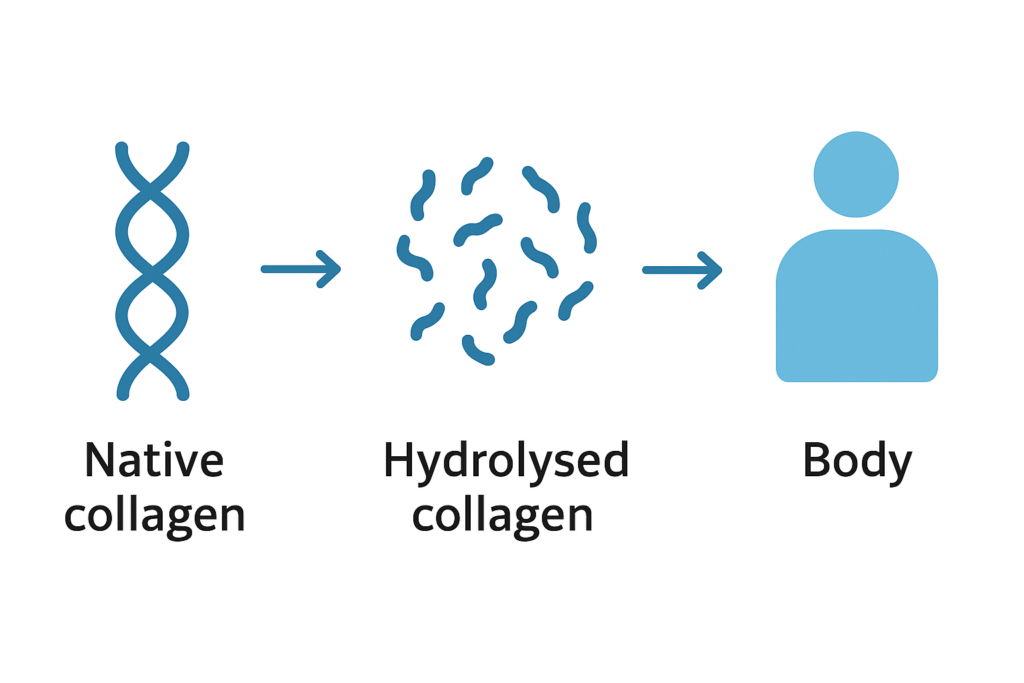
Learn what leptin resistance is, why it happens and how to improve leptin sensitivity naturally.
Find out a few practical lifestyle tips to help you control hunger and boost your metabolism
What Is Leptin?
First of all, leptin is a hormone made of amino acids.
It is secreted mainly by our fat cells into the bloodstream and also by the stomach when we eat.
Leptin’s main role is to tell the brain that we’ve had enough food, so we can stop eating.
That’s why it’s often called the “satiety hormone.”
When we have enough leptin circulating in our blood, the brain understands that our energy tank is full and we’re not starving.
But when leptin levels drop, the brain receives the opposite message: energy is low, time to eat!
Why Is Leptin Important?
Leptin plays many key roles in the body.
Its best-known function is metabolic regulation, which includes:
- Balancing energy levels
- Suppressing appetite to prevent overeating
- Increasing energy expenditure to help maintain body weight
- Supporting healthy fat storage over time
Leptin also influences other important physiological functions, such as neuroplasticity, immune system activity, bone health, and reproduction.
Factors That Lower Leptin Levels
- Weight loss: When body fat decreases, leptin secretion drops. That’s why we often feel hungrier after losing weight.
- Reduced energy intake: During restrictive diets, the body interprets the low energy intake as starvation, leading to lower leptin levels.
- Fasting for long periods: People who fast for many hours may feel intense hunger due to low leptin levels.
- Congenital leptin deficiency: A rare genetic disorder in which the body produces little or no leptin (similar to type 1 diabetes), leading to severe weight gain.
- High levels of exercise without proper fueling: Training hard while running on low energy can lower leptin levels significantly.
- Eating disorders: In anorexia nervosa, extremely low food intake and body fat lead to very low leptin levels.
- Poor sleep: Lack of sleep can lower leptin and increase hunger, as the body interprets sleep deprivation as a lack of energy.
What Is Leptin Resistance and How It Develops
In some regions of our brain, particularly the hypothalamus, we have receptors for leptin to signal when we’ve eaten enough.
When we consistently eat in excess, leptin levels remain high in our blood. Over time, the brain’s leptin receptors become less responsive to these signals.
As a result, the brain no longer recognizes that the body has enough energy stored, and we feel less satiated.
This condition is called leptin resistance, and it’s similar in concept to insulin resistance.
Meanwhile, frequent insulin spikes from high-GI, refined foods worsen the problem because insulin and leptin share overlapping signaling pathways in the hypothalamus.
High insulin can inhibit leptin transport into the brain and promote inflammation, reducing leptin’s effectiveness.
So, chronically high insulin is also responsible for leptin resistance.
Health Consequences of Leptin Resistance
When the brain stops responding properly to leptin, it no longer recognizes that the body has enough energy stored. This can lead to:
- Constant hunger
- Overeating
- Progressive weight gain
Over time, leptin resistance is often linked to:
- Obesity
- Insulin resistance
- Type 2 diabetes
- Chronic inflammation
- Metabolic syndrome
Because leptin also plays a role in immunity, bone health, and reproduction, its resistance can affect hormonal balance, fertility, and overall metabolic health.
6 Practical Tips to Maintain Healthy Leptin Levels and Reduce Leptin Resistance
1. Reduce insulin spikes
Through balanced eating, we allow leptin signaling to normalize – not too low, not too high- just at the healthy level that helps the brain recognize when the body has had enough energy.
Focus on whole foods, avoid frequent snacking, and limit high-sugar or refined-carb meals that trigger constant insulin release.
2. Get enough sleep
Aim for 7 to 9 hours of quality sleep every night to keep your hormones balanced and your appetite in check.
3. Reduce stress
Chronic stress can disrupt leptin regulation.
Use stress management tools to rebalance your hormones: spend time outdoors, connect with loved ones, move your body, meditate, dance, cook, whatever helps you unwind.
4. Exercise regularly
Exercise benefits every system in your body, and it’s also key to improving leptin sensitivity.
Move regularly, but always fuel according to the intensity of your workouts.
Training on an empty tank or without enough nutrition can backfire, raising leptin excessively and slowing recovery.
5. Don’t starve yourself
Extreme diets and prolonged fasting reduce leptin and slow your metabolism.
Focus on balanced, sustainable eating instead of restriction, your hormones will thank you.
6. Support your metabolism with nutrients
Omega-3s, zinc, and vitamin D help maintain healthy leptin and insulin sensitivity.
Eat real food: colourful fruits and vegetables, quality proteins, healthy fats, and fibre-rich carbs.
Avoid ultra-processed foods high in sugar, salt, refined flour, and poor-quality fats.
Maintaining healthy leptin levels is not about restriction or dieting: it’s about balance.
Balanced meals, sufficient sleep, manageable stress, regular exercise, and nutrient-dense foods help your brain sense its own satiety signals again.
When leptin is working properly, you naturally feel full at the right time, prevent overeating, and can support healthy weight loss while improving metabolism and protecting your long-term health.


